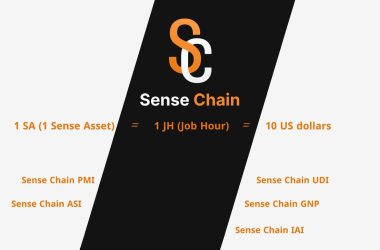Inflation Rate Drops Close to Bank of England’s Target
The headline rate of inflation, measured by the consumer prices index (CPI), has seen a significant drop from its 40-year high of 11.1% in October 2022. It is now within touching distance of the Bank of England’s target rate of 2%. This news may come as a relief to the government, who have promised to take measures to reduce inflation.
Chancellor Rishi Sunak had made a commitment to halve inflation last year and was quick to take credit for the recent decrease. However, it is worth noting that the Bank of England may deserve more recognition for their efforts in bringing down inflation. Their series of interest rate rises from December 2021 to August 2022 have helped to control demand and alleviate some of the inflationary pressures in the economy.
While the government may claim some credit for the decrease in inflation, it is largely due to their efforts in restoring order to the public finances. After the market panic caused by former Prime Minister Liz Truss’s attempt to introduce unfunded tax cuts, Sunak and Jeremy Hunt have successfully calmed the situation. Sterling has also strengthened in value, which has contributed to lower costs of goods and services from the US and Eurozone.
However, government policies have also played a role in driving inflation up. The latest figures show an increase in public sector pay of 6.3% year on year, which has had a direct impact on prices. The chancellor has also raised taxes on tobacco and recently increased the national living wage by 9.8%, both of which can contribute to higher prices in certain sectors such as hospitality.
As the government faces a general election on 4 July, they may not be able to take full credit for the decrease in inflation. The Bank’s monetary policy committee and UK retailers also deserve recognition for their efforts in controlling prices. The British Retail Consortium has reported shop price inflation at just 0.8% in April, down from 1.3% in March.
It is worth noting that the decline in inflation can also be attributed to “base effects” – the impact of the corresponding “base” from the previous year. For example, meat prices fell by 0.5% between February and March this year, compared to a rise of 1.4% during the same period last year. This resulted in a lower annual rate of inflation in meat prices for March 2024.
The situation in 2022, including Russia’s invasion of Ukraine and China’s sudden relaxation of COVID restrictions, also contributed to the sharp increase in inflation. The price of oil and various foodstuffs rose, causing a ripple effect on prices globally. However, these factors are no longer as prevalent, resulting in a decrease in the inflation rate.
While there are still elements in the UK inflation basket that are rising in price, they are not increasing at the same rate as they were a year ago. This is the main reason for the decrease in inflation and brings it back in line with the Bank of England’s target rate.



